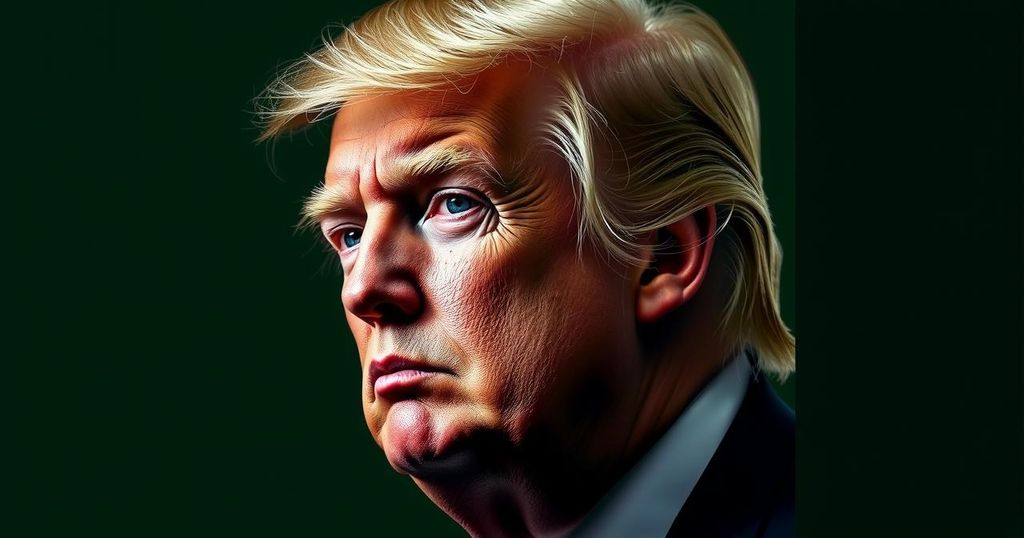The Complex Impact of Donald Trump’s Return on African Affairs

The article analyzes the implications of Donald Trump’s return to the presidency for Africa, highlighting his preference for transactional politics over multilateral diplomacy. It raises concerns about potential instability in conflict-prone regions like Sudan and Ethiopia, as well as the empowerment of autocratic regimes under his leadership. The analysis suggests that Trump’s policies could undermine previous peace efforts, with significant risks for Africa’s geopolitical landscape.
As US President-elect Donald Trump prepares to return to the White House, his potential impact on Africa remains uncertain. His preference for transactional politics over traditional diplomacy may open new avenues, yet also pose significant risks. Under the Obama administration, progress was made in strengthening African peacekeeping missions, yet Trump’s first term saw a cessation of new peacekeeping initiatives and a shift towards direct deal-making that overlooked the principles of multilateralism, often favoring autocrats. This approach has already altered the landscape of US relations with Africa, as seen during the Abraham Accords, which prioritized alliances based on immediate benefits rather than long-term stability. As African nations grapple with conflicts in regions like Sudan and Ethiopia, the absence of a solid, principled US foreign policy poses a greater challenge. Trump’s administration is predicted to follow a similar trajectory, favoring informal agreements over comprehensive frameworks that prioritize human rights and democracy. Such developments may embolden regional players who seek to manipulate relationships for their gain, thereby exacerbating existing tensions. The fallout from this approach could lead to further conflicts across the continent, particularly if Trump resorts to tactical alignments with leaders such as Egypt’s al-Sisi, potentially using military leverage only when American interests are directly threatened. Additionally, the possibility of a loose coalition between African leaders and Middle Eastern powers could generate both opportunities and crises, particularly against the backdrop of rising jihadist movements in West Africa. Trump’s focus on opportunistic alliances may neglect the historical context and entrenched issues that underpin the conflicts in the region. This reality raises serious concerns about the future of peace in Africa, especially with Trump likely prioritizing immediate deals over enduring solutions. Accordingly, the second Trump administration may witness a continuation of the ‘illiberal peace’ framework that characterized his first term, ultimately undermining efforts towards sustainable peace and stability in Africa. The immediate political landscape, shaped by strategic negotiations and uncertain alliances, signifies a departure from the multilateral processes that had previously been used to ensure cooperation and security in various African regions.
The article discusses the anticipated implications of US President-elect Donald Trump’s return to the presidency for African countries, particularly in terms of international relations and peacekeeping efforts. It contrasts previous administrations’ commitments to multilateral diplomacy with Trump’s transactional approach to foreign policy. The article highlights Trump’s influence on past deals, such as those relating to the Abraham Accords, and examines how his policies may exacerbate existing tensions in conflict-prone areas like Sudan and Ethiopia. The potential for destabilization through reliance on autocratic regimes and an absence of principled support for peacebuilding efforts forms a core theme.
In conclusion, the anticipated return of Donald Trump to the presidency brings with it a complex mix of potential benefits and significant hazards for Africa. His preference for transactional deals and disregard for multilateralism may hinder long-term peace initiatives and invite further instability within the continent. The absence of a robust, principled US foreign policy could embolden authoritarian regimes and intensify existing conflicts, resulting in a precarious political environment for African nations. Ultimately, the need for collective, norm-based strategies to ensure peace and stability remains paramount.
Original Source: www.bbc.com








